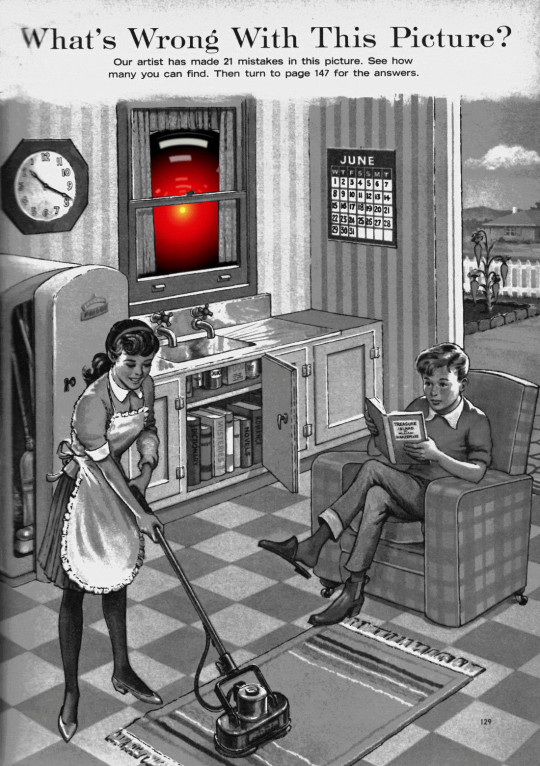Text
The 'write for yourself uwu' culture shift has done real damage to fic writers imo. I recently had a post on the importance of strategic commenting break containment and I'm surprised by how many strangers who rb it in agreement feel the need to reassure in the tags that they do write for themselves, but...
There is a kernel of truth in the heart of this sentiment--if you only chase stats, you are unlikely to find joy in your writing. At the same time, I think we've veered too far in the other direction.
It is only natural to want engagement and the write for yourself crowd often overlooks how communal an effort fic writing usually is. So many story ideas are born from casual discussions about h/c's and favourite scenes and what ifs and the comment box is a cornerstone of this process. Not only can the discussions in the comment box be a hub for idea generation on their own, but even when the said idea generation takes place in DMs or Discord chats, commenting is often the first/easiest way into befriending authors; it's where community building starts.
Further, the write for yourself crowd similarly overlooks that the things a writer can write for themselves are often vast and many at any given time, and relative engagement levels across fandoms/ships can play a large part in which of those ideas a writer chooses to pursue--or whether they choose to publish their finished work at all.
In sum, I don't think we need to be this apologetic as writers for wanting feedback and engagement for what we post -- writing is hard work and it's only human that we want something external out of it in turn, however rewarding the process might intrinsically be.
#writing#yes yes yes all of this#when writing became a social activity my output skyrocketed#this is also why I’ve struggled writing original fiction#I need more of an ofic writing community
10K notes
·
View notes
Text
Rule one of fandom: there are some things that only exist for us.
Don’t send actors fics
Don’t give them explicit art ever
Don’t tag them in rpf questions or theories
Don’t try to bring them into fandom drama of any kind
Don’t hold them responsible for what the producers and writers decide
They’re still people. They have private lives, which do not include fandom.
141K notes
·
View notes
Text
Popcorn and Toast playing some vs basketball! I'm really proud of Toast in particular for being able to hold her own - Popcorn can be very pushy with basketball so I wasn't sure how Toast would do given her initial struggle with it, but she rose to the challenge and got just as many hoops as Popcorn! Go Toast and Popcorn!
#RATTIES#we need to teach ours something fun like this#all I’ve ever taught my rats is to come when called
318 notes
·
View notes
Text
Sorry, but Mary’s “Seatbelt on. I drive fast” line is the EPITOME of what they’re doing with her this season.
you hear seatbelt on and you think MOMMMM! boooooring!
and then she snaps i drive fast and peels out of the parking lot like Dominic Toretto and you realize that this mom is a daredevil petrolhead who can barely keep herself safe let alone anyone else. she’s trying but it’s so so hard! and she’s also not very good at it!
I love my crappy fuckup mom with a heart of gold! I adore her!
110 notes
·
View notes
Text
Me, reading “little slime creature”: You are the Blob from A Boy and His Blob and everything the armor can do you are actually capable of yourself but only if you eat the right flavor of jelly bean. But there are no jelly beans available during the game.
Pseudo-metroidvania where you play as an only-nominally-sapient little slime creature who found the corpse of a badass deep space bounty hunter and stole their power armour. The central gimmick is that you start with what is effectively an endgame loadout, but the upgrade descriptions are all incomprehensible gibberish (because, you know, you can't read), and they're all activated by awkward and counterintuitive input sequences – imagine some of the more baroque fighting game inputs as a point of reference – which the player is unlikely to stumble upon by chance. The "upgrade progression", such as it is, consists simply of gradually revealing to the player the tools they already possess and how to activate them.
1K notes
·
View notes
Text
🔹 Saying that it's okay to write or read about dark and taboo topics but only when they're portrayed in a certain way is still censorship.
🔹 Wanting to ban or forbid media that you believe portrays a negative topic in a positive light, by glorifying, romanticizing, or fetishizing it is still censorship.
🔹 There is no objective metric to decide if a story is portraying a negative topic the 'right' way.
🔹 Just because a piece of fiction doesn't explicitly condemn or portray an evil action in a bad light in the text doesn't mean the author thinks its good or is trying to persuade the audience that it is good.
🔹 Survivors of trauma will not always write fiction about their trauma in a way that seems 'right' or 'normal' to you.
🔹 Banning fiction because it portrays dark, taboo topics in a way you consider gross or disgusting is still censorship.
3K notes
·
View notes
Text
I am genuinely so worried for all the young horny dykes going into adulthood thinking there's something "problematic" / "wrong" with them for being horny because fucking tiktok lesbians think any horny dyke content is "male gaze fetishitic"
38K notes
·
View notes
Text
There should be a fanfic writing game called the showrunners challenge where someone writes a story and partway through someone else can play things like "actor leaves after 4000 more words" or "topic now too politically sensitive due to unforeseen world events" or "lost rights to that reference"
17K notes
·
View notes
Text

Oh damn the Catholics have joined in on the war against AI "art".
74K notes
·
View notes
Text
“Humans in the loop” must detect the hardest-to-spot errors, at superhuman speed

I'm touring my new, nationally bestselling novel The Bezzle! Catch me SATURDAY (Apr 27) in MARIN COUNTY, then Winnipeg (May 2), Calgary (May 3), Vancouver (May 4), and beyond!

If AI has a future (a big if), it will have to be economically viable. An industry can't spend 1,700% more on Nvidia chips than it earns indefinitely – not even with Nvidia being a principle investor in its largest customers:
https://news.ycombinator.com/item?id=39883571
A company that pays $0.36-$1/query for electricity and (scarce, fresh) water can't indefinitely give those queries away by the millions to people who are expected to revise those queries dozens of times before eliciting the perfect botshit rendition of "instructions for removing a grilled cheese sandwich from a VCR in the style of the King James Bible":
https://www.semianalysis.com/p/the-inference-cost-of-search-disruption
Eventually, the industry will have to uncover some mix of applications that will cover its operating costs, if only to keep the lights on in the face of investor disillusionment (this isn't optional – investor disillusionment is an inevitable part of every bubble).
Now, there are lots of low-stakes applications for AI that can run just fine on the current AI technology, despite its many – and seemingly inescapable errors ("hallucinations"). People who use AI to generate illustrations of their D&D characters engaged in epic adventures from their previous gaming session don't care about the odd extra finger. If the chatbot powering a tourist's automatic text-to-translation-to-speech phone tool gets a few words wrong, it's still much better than the alternative of speaking slowly and loudly in your own language while making emphatic hand-gestures.
There are lots of these applications, and many of the people who benefit from them would doubtless pay something for them. The problem – from an AI company's perspective – is that these aren't just low-stakes, they're also low-value. Their users would pay something for them, but not very much.
For AI to keep its servers on through the coming trough of disillusionment, it will have to locate high-value applications, too. Economically speaking, the function of low-value applications is to soak up excess capacity and produce value at the margins after the high-value applications pay the bills. Low-value applications are a side-dish, like the coach seats on an airplane whose total operating expenses are paid by the business class passengers up front. Without the principle income from high-value applications, the servers shut down, and the low-value applications disappear:
https://locusmag.com/2023/12/commentary-cory-doctorow-what-kind-of-bubble-is-ai/
Now, there are lots of high-value applications the AI industry has identified for its products. Broadly speaking, these high-value applications share the same problem: they are all high-stakes, which means they are very sensitive to errors. Mistakes made by apps that produce code, drive cars, or identify cancerous masses on chest X-rays are extremely consequential.
Some businesses may be insensitive to those consequences. Air Canada replaced its human customer service staff with chatbots that just lied to passengers, stealing hundreds of dollars from them in the process. But the process for getting your money back after you are defrauded by Air Canada's chatbot is so onerous that only one passenger has bothered to go through it, spending ten weeks exhausting all of Air Canada's internal review mechanisms before fighting his case for weeks more at the regulator:
https://bc.ctvnews.ca/air-canada-s-chatbot-gave-a-b-c-man-the-wrong-information-now-the-airline-has-to-pay-for-the-mistake-1.6769454
There's never just one ant. If this guy was defrauded by an AC chatbot, so were hundreds or thousands of other fliers. Air Canada doesn't have to pay them back. Air Canada is tacitly asserting that, as the country's flagship carrier and near-monopolist, it is too big to fail and too big to jail, which means it's too big to care.
Air Canada shows that for some business customers, AI doesn't need to be able to do a worker's job in order to be a smart purchase: a chatbot can replace a worker, fail to their worker's job, and still save the company money on balance.
I can't predict whether the world's sociopathic monopolists are numerous and powerful enough to keep the lights on for AI companies through leases for automation systems that let them commit consequence-free free fraud by replacing workers with chatbots that serve as moral crumple-zones for furious customers:
https://www.sciencedirect.com/science/article/abs/pii/S0747563219304029
But even stipulating that this is sufficient, it's intrinsically unstable. Anything that can't go on forever eventually stops, and the mass replacement of humans with high-speed fraud software seems likely to stoke the already blazing furnace of modern antitrust:
https://www.eff.org/de/deeplinks/2021/08/party-its-1979-og-antitrust-back-baby
Of course, the AI companies have their own answer to this conundrum. A high-stakes/high-value customer can still fire workers and replace them with AI – they just need to hire fewer, cheaper workers to supervise the AI and monitor it for "hallucinations." This is called the "human in the loop" solution.
The human in the loop story has some glaring holes. From a worker's perspective, serving as the human in the loop in a scheme that cuts wage bills through AI is a nightmare – the worst possible kind of automation.
Let's pause for a little detour through automation theory here. Automation can augment a worker. We can call this a "centaur" – the worker offloads a repetitive task, or one that requires a high degree of vigilance, or (worst of all) both. They're a human head on a robot body (hence "centaur"). Think of the sensor/vision system in your car that beeps if you activate your turn-signal while a car is in your blind spot. You're in charge, but you're getting a second opinion from the robot.
Likewise, consider an AI tool that double-checks a radiologist's diagnosis of your chest X-ray and suggests a second look when its assessment doesn't match the radiologist's. Again, the human is in charge, but the robot is serving as a backstop and helpmeet, using its inexhaustible robotic vigilance to augment human skill.
That's centaurs. They're the good automation. Then there's the bad automation: the reverse-centaur, when the human is used to augment the robot.
Amazon warehouse pickers stand in one place while robotic shelving units trundle up to them at speed; then, the haptic bracelets shackled around their wrists buzz at them, directing them pick up specific items and move them to a basket, while a third automation system penalizes them for taking toilet breaks or even just walking around and shaking out their limbs to avoid a repetitive strain injury. This is a robotic head using a human body – and destroying it in the process.
An AI-assisted radiologist processes fewer chest X-rays every day, costing their employer more, on top of the cost of the AI. That's not what AI companies are selling. They're offering hospitals the power to create reverse centaurs: radiologist-assisted AIs. That's what "human in the loop" means.
This is a problem for workers, but it's also a problem for their bosses (assuming those bosses actually care about correcting AI hallucinations, rather than providing a figleaf that lets them commit fraud or kill people and shift the blame the an unpunishable AI).
Humans are good at a lot of things, but they're not good at eternal, perfect vigilance. Writing code is hard, but performing code-review (where you check someone else's code for errors) is much harder – and it gets even harder if the code you're reviewing is usually fine, because this requires that you maintain your vigilance for something that only occurs at rare and unpredictable intervals:
https://twitter.com/qntm/status/1773779967521780169
But for a coding shop to make the cost of an AI pencil out, the human in the loop needs to be able to process a lot of AI-generated code. Replacing a human with an AI doesn't produce any savings if you need to hire two more humans to take turns doing close reads of the AI's code.
This is the fatal flaw in robo-taxi schemes. The "human in the loop" who is supposed to keep the murderbot from smashing into other cars, steering into oncoming traffic, or running down pedestrians isn't a driver, they're a driving instructor. This is a much harder job than being a driver, even when the student driver you're monitoring is a human, making human mistakes at human speed. It's even harder when the student driver is a robot, making errors at computer speed:
https://pluralistic.net/2024/04/01/human-in-the-loop/#monkey-in-the-middle
This is why the doomed robo-taxi company Cruise had to deploy 1.5 skilled, high-paid human monitors to oversee each of its murderbots, while traditional taxis operate at a fraction of the cost with a single, precaratized, low-paid human driver:
https://pluralistic.net/2024/01/11/robots-stole-my-jerb/#computer-says-no
The vigilance problem is pretty fatal for the human-in-the-loop gambit, but there's another problem that is, if anything, even more fatal: the kinds of errors that AIs make.
Foundationally, AI is applied statistics. An AI company trains its AI by feeding it a lot of data about the real world. The program processes this data, looking for statistical correlations in that data, and makes a model of the world based on those correlations. A chatbot is a next-word-guessing program, and an AI "art" generator is a next-pixel-guessing program. They're drawing on billions of documents to find the most statistically likely way of finishing a sentence or a line of pixels in a bitmap:
https://dl.acm.org/doi/10.1145/3442188.3445922
This means that AI doesn't just make errors – it makes subtle errors, the kinds of errors that are the hardest for a human in the loop to spot, because they are the most statistically probable ways of being wrong. Sure, we notice the gross errors in AI output, like confidently claiming that a living human is dead:
https://www.tomsguide.com/opinion/according-to-chatgpt-im-dead
But the most common errors that AIs make are the ones we don't notice, because they're perfectly camouflaged as the truth. Think of the recurring AI programming error that inserts a call to a nonexistent library called "huggingface-cli," which is what the library would be called if developers reliably followed naming conventions. But due to a human inconsistency, the real library has a slightly different name. The fact that AIs repeatedly inserted references to the nonexistent library opened up a vulnerability – a security researcher created a (inert) malicious library with that name and tricked numerous companies into compiling it into their code because their human reviewers missed the chatbot's (statistically indistinguishable from the the truth) lie:
https://www.theregister.com/2024/03/28/ai_bots_hallucinate_software_packages/
For a driving instructor or a code reviewer overseeing a human subject, the majority of errors are comparatively easy to spot, because they're the kinds of errors that lead to inconsistent library naming – places where a human behaved erratically or irregularly. But when reality is irregular or erratic, the AI will make errors by presuming that things are statistically normal.
These are the hardest kinds of errors to spot. They couldn't be harder for a human to detect if they were specifically designed to go undetected. The human in the loop isn't just being asked to spot mistakes – they're being actively deceived. The AI isn't merely wrong, it's constructing a subtle "what's wrong with this picture"-style puzzle. Not just one such puzzle, either: millions of them, at speed, which must be solved by the human in the loop, who must remain perfectly vigilant for things that are, by definition, almost totally unnoticeable.
This is a special new torment for reverse centaurs – and a significant problem for AI companies hoping to accumulate and keep enough high-value, high-stakes customers on their books to weather the coming trough of disillusionment.
This is pretty grim, but it gets grimmer. AI companies have argued that they have a third line of business, a way to make money for their customers beyond automation's gifts to their payrolls: they claim that they can perform difficult scientific tasks at superhuman speed, producing billion-dollar insights (new materials, new drugs, new proteins) at unimaginable speed.
However, these claims – credulously amplified by the non-technical press – keep on shattering when they are tested by experts who understand the esoteric domains in which AI is said to have an unbeatable advantage. For example, Google claimed that its Deepmind AI had discovered "millions of new materials," "equivalent to nearly 800 years’ worth of knowledge," constituting "an order-of-magnitude expansion in stable materials known to humanity":
https://deepmind.google/discover/blog/millions-of-new-materials-discovered-with-deep-learning/
It was a hoax. When independent material scientists reviewed representative samples of these "new materials," they concluded that "no new materials have been discovered" and that not one of these materials was "credible, useful and novel":
https://www.404media.co/google-says-it-discovered-millions-of-new-materials-with-ai-human-researchers/
As Brian Merchant writes, AI claims are eerily similar to "smoke and mirrors" – the dazzling reality-distortion field thrown up by 17th century magic lantern technology, which millions of people ascribed wild capabilities to, thanks to the outlandish claims of the technology's promoters:
https://www.bloodinthemachine.com/p/ai-really-is-smoke-and-mirrors
The fact that we have a four-hundred-year-old name for this phenomenon, and yet we're still falling prey to it is frankly a little depressing. And, unlucky for us, it turns out that AI therapybots can't help us with this – rather, they're apt to literally convince us to kill ourselves:
https://www.vice.com/en/article/pkadgm/man-dies-by-suicide-after-talking-with-ai-chatbot-widow-says

If you'd like an essay-formatted version of this post to read or share, here's a link to it on pluralistic.net, my surveillance-free, ad-free, tracker-free blog:
https://pluralistic.net/2024/04/23/maximal-plausibility/#reverse-centaurs

Image:
Cryteria (modified)
https://commons.wikimedia.org/wiki/File:HAL9000.svg
CC BY 3.0
https://creativecommons.org/licenses/by/3.0/deed.en
404 notes
·
View notes
Text
Working at the sex shop really did rewire my brain. There was basically no topic that was too taboo to talk about, and what little propriety I’d had evaporated. I’d be out walking and chatting with friends about erotica I’d had to read that day only to be shushed and realize people were staring at me.
It always struck me as a little bit silly but I learned to curb myself for others comfort levels. Mostly.
But I have one distinct memory of decorating holiday cookies with my parents and my grandmother. My mom had worked in a sex shop back in her day, and I never hid my line of work from my family, so I was telling a work story.
I was conscious that my dad was slightly more sensitive, so I was using pretty broad descriptions, but I happened to mention silicone lube and my nana asked, “What’s that?”
I went into full sales mode. Focused on the little reindeer cookie I was decorating I started info dumping, “Oh, it’s pretty great. Water based lubricants get absorbed through vaginal mucous membranes, but silicone is too dense and our body can’t absorb it the same way. So once you apply some silicone you never have to worry about chafing, and a little goes a long way. It’s especially popular with older women, because they start producing less natural lubricant and absorb water based lubes so quickly.”
There was a silent beat after this statement.
I looked up.
My mom and grandmother were looking at me with rapt attention, and I belatedly realized I was addressing two older women who probably would welcome extra lubrication.
And then there was my dad, blushing so pink with embarrassment that I thought he was about to faint.
“I can talk about something else,” I offered in apology to my dad.
“Like hell! He can go in the other room, tell me more!” My nana declared. My dad scampered off to busy himself in another room while I answered their questions and talked about brands and pricing.
I slipped them each a small bottle of silicone lube for the holidays.
8K notes
·
View notes
Text










3x6 - Spectre of the Gun
1K notes
·
View notes








